- Love is about Appreciation
“If you love a flower, don’t pick it up.
Because if you pick it up it dies and it ceases to be what you love.
So if you love a flower, let it be.
Love is not about possession.
Love is about appreciation.”
- The Circle of Life
“Life repeats itself unless you become mindful, it will go on repeating like a wheel. That’s why Buddhists call it the wheel of life and death, the wheel of time. It moves like a wheel: birth is followed by death, death is followed by birth; love is followed by hate, hate is followed by love; success is followed by failure, failure is followed by success.
Just see! If you can watch just for a few days, you will see a pattern emerging, a wheel pattern. One day, a fine morning, you are feeling so good and so happy, and another day you are so dull, so dead that you start thinking of committing suicide. And just the other day you were so full of life, so blissful that you were feeling thankful to God, that you were in a mood of deep gratefulness, and today there is great complaint and you don’t see the point why one should go on living. And it goes on and on, but you don’t see the pattern. Once you see the pattern, you can get out of it.”
- The Power of Patience
“Nobody has the power to take two steps together; you can take only one step at a time.”
- xperience Life in all its Colours
“Experience life in all possible ways —
good-bad, bitter-sweet, dark-light,
summer-winter. Experience all the dualities.
Don’t be afraid of experience, because
the more experience you have, the more
mature you become.”
- Sadness & Happiness go hand-in-hand
“Sadness gives depth. Happiness gives height. Sadness gives roots. Happiness gives branches. Happiness is like a tree going into the sky, and sadness is like the roots going down into the womb of the earth. Both are needed, and the higher a tree goes, the deeper it goes, simultaneously. The bigger the tree, the bigger will be its roots. In fact, it is always in proportion. That’s its balance.”
- On our Purpose
“Each person comes into this world with a specific destiny–he has something to fulfill, some message has to be delivered, some work has to be completed. You are not here accidentally–you are here meaningfully. There is a purpose behind you. The whole intends to do something through you.”
- You are a Masterpiece Already
“Drop the idea of becoming someone, because you are already a masterpiece. You cannot be improved. You have only to come to it, to know it, to realize it.”
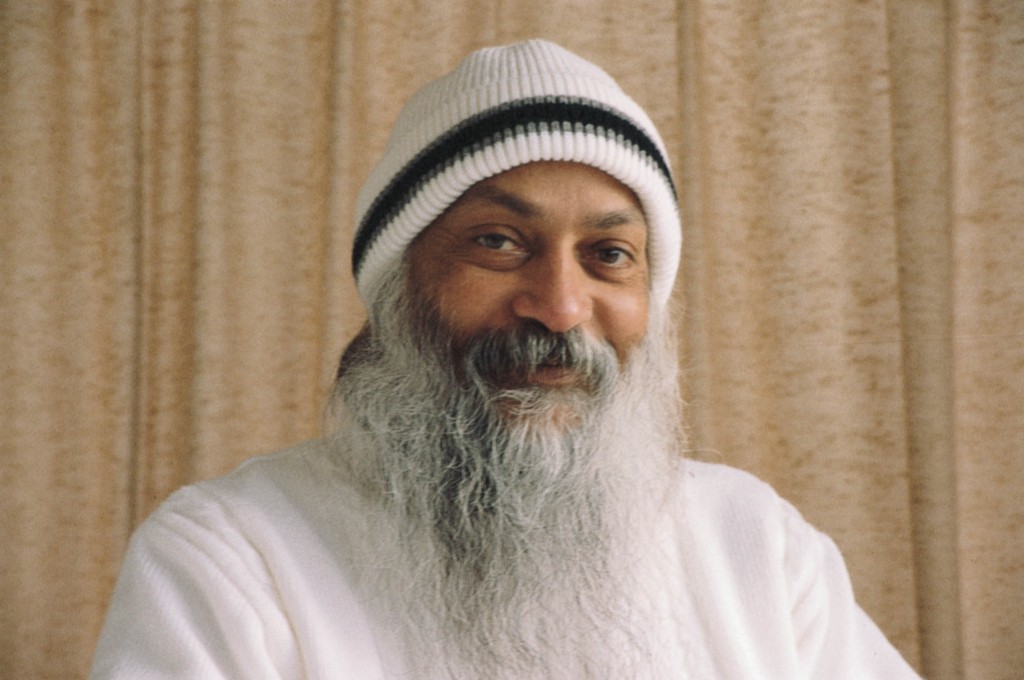
Osho, pictured above, was an Indian mystic and spiritualist who died in 1990. His free-spirited worldview was something that one would commonly associate with Woodstock-era hippies (except for his virulent anti-gay attitudes) combined with many of the notions one would find in a modern yoga studio. His following grew through the 1970s and into the early 1980s, attracting many Americans and Europeans into the fold. As such, he and his followers looked for increasingly larger plots of land for their ashram (basically a commune). But as tensions between Osho’s group and the regional Indian government grew, Osho — then known as Bhagwan Shree Rajneesh — left for the United States. In 1981, he founded a commune in rural Oregon on a 64,000 acre plot of land, called it Rajneeshpuram, and invited his followers to move there.
Four years later, his followers put 45 people in the hospital as part of the largest bioterrorist attack in United States history.
The Rajneeshee movement is often considered a cult of sorts. As Wikipedia notes, Osho lived the high-life (owning 90 Rolls-Royces) while his followers were expected to live simple, frugal lives, eschewing both material wealth as well as relationships with their former friends. Yet, in the beginning, the Rajneeshees made for good neighbors — relations between locals and commune-dwellers started off as friendly.
That changed as the commune tried to grow. The people living in and around The Dalles, the largest city near Rajneeshpuram, saw the Rajneeshees as a threat to their communities. Relations fractured and in 1984, the Rajneeshees took aim at the ballot box, hoping to obtain two of the three seats on the county court as well as control over the sheriff’s office. But the Rajneeshees were outnumbered — as the New York Times reported, fewer than 250 of its roughly 7,000 residents were able to vote. In order to win those county seats, Rajneeshpuram needed to grow — and the rest of the county needed to shrink.
The plan came in two parts. The first involved what appeared, outwardly, to be an outreach campaign to the homeless community from other areas of Oregon: residents of Rajneeshpuram were expected to share their homes with the homeless, giving the latter a roof over their heads and the community another person who would vote in their favor. (That may sound like a pretty good way to help a group of disadvantaged people — even if the motivation is political power — but keep reading.)
But that wasn’t going to be enough — and probably wouldn’t have worked anyway, as most of the homeless were considered guests and not domiciliaries of their new town. So part two of the plan kicked into gear: lower the number of non-Rajneeshee voters. In order for Rajneeshpuram to prevail over its neighbors, many of the neighbors needed to stay home on Election Day — figuratively speaking, that is. Literally speaking, the neighbors could be anywhere so long as they couldn’t make it to their voting place. And if you really want to incapacitate someone and have no qualms about being a terrible person, sending your enemies to the hospital would work.
Two of Osho’s top followers, known as Ma Anand Sheela and Ma Anand Puja, acquired some salmonella bacteria from a local medical supply company and set up a lab to develop more of it. The plan: create enough salmonella to taint the area’s water supply, effectively incapacitating most of the electorate. After some time, the duo and their helpers were able to test their theory. Slate explains:
Over the course of two months, the group contaminated 10 salad bars in the area with salmonella in an attempt to suppress the vote. Using a plastic bag filled with a brown liquid they nicknamed “salsa,” they poured the salmonella filled slurry directly into salad dressings, splashed it on produce, put it in water, and generally got it everywhere they could. 751 people fell ill, and 45 were hospitalized with Salmonella poisoning.
At first, the Centers for Disease Control (CDC) blamed poor sanitation practices of area food handlers, but locals suspected otherwise, and the area’s House member, James H. Weaver, kept pointing the finger at Rajneeshpuram. Ultimately, it was Osho himself who gave investigators the key information they needed. In September of the following year, Osho learned of the criminal activity when Ma Anand Sheela and Ma Anand Puja absconded to Europe and left the bioterror lab behind. He invited investigators into Rajneeshpuram and the evidence behind the caper was there for the taking. The CDC recanted its earlier stance and verified that the salmonella found at the Rajneeshpuram lab was the same used to poison the people of The Dalles.
During the subsequent investigation, officials found evidence that Osho himself knew of the plot, but authorities failed to convict him of any related crimes. He was, however, charged with a bevy of immigration law violations and ultimately pled guilty to two, leading to a fine and his deportation. He died in India in 1990, at age 58. Ma Anand Sheela and Ma Anand Puja were eventually convicted of a variety of crimes; each served 29 months in prison.
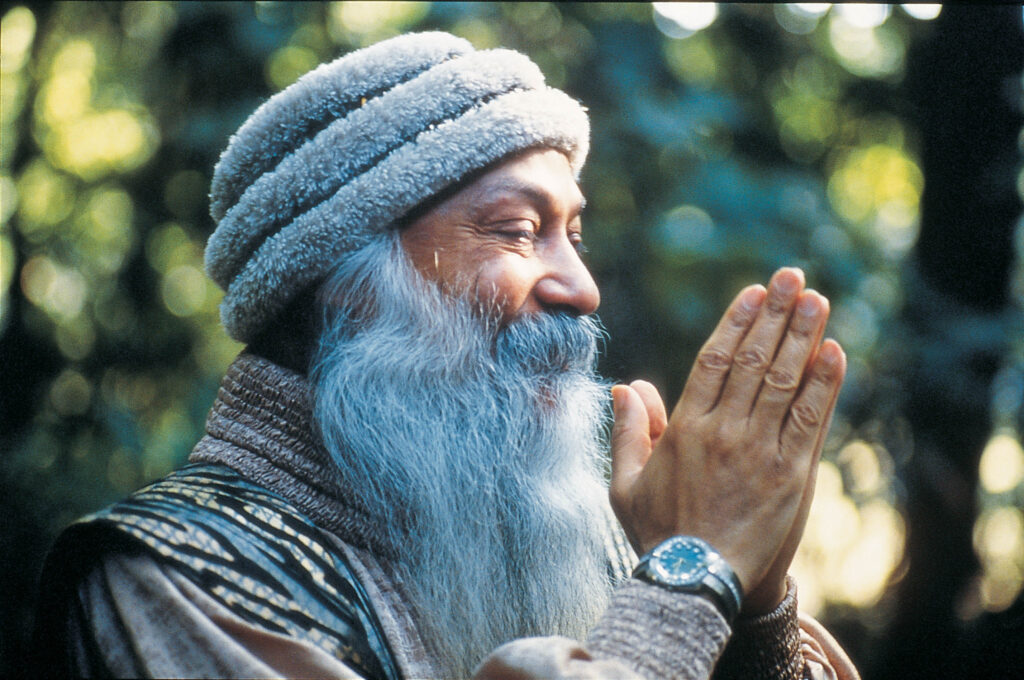

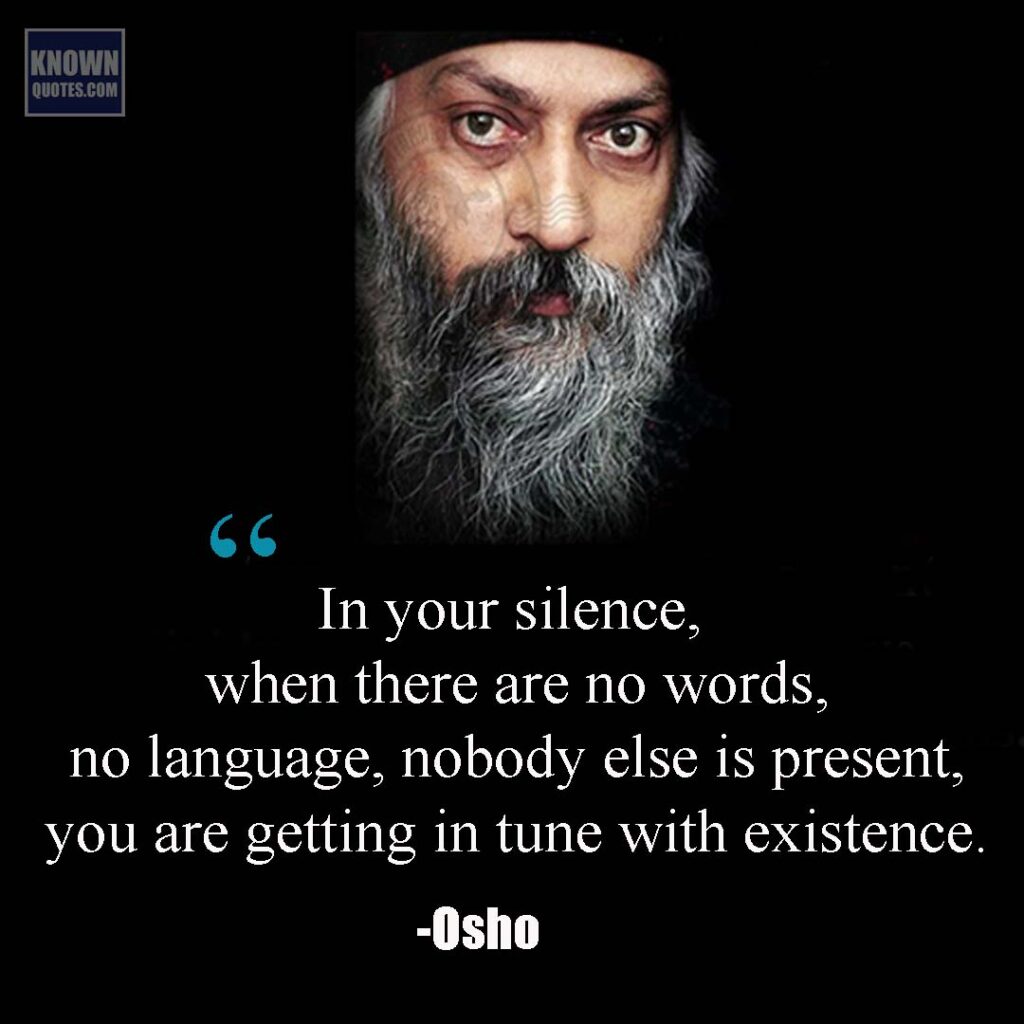
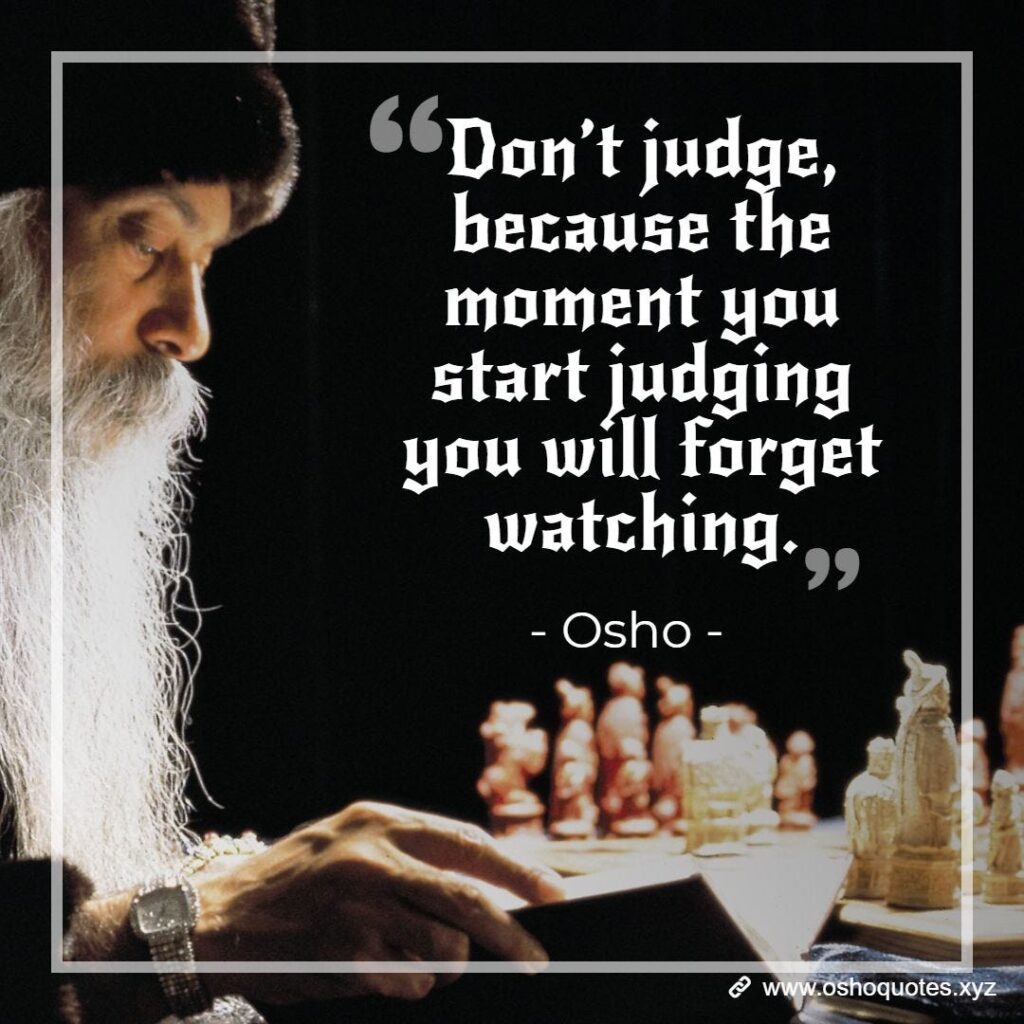



“If you love a flower, don’t pick it up.
Because if you pick it up it dies and it ceases to be what you love.
So if you love a flower, let it be.
Love is not about possession.
Love is about appreciation.”
― Osho
“Experience life in all possible ways —
good-bad, bitter-sweet, dark-light,
summer-winter. Experience all the dualities.
Don’t be afraid of experience, because
the more experience you have, the more
mature you become.”
― Osho
“Friendship is the purest love. It is the highest form of Love where nothing is asked for, no condition, where one simply enjoys giving.”
― Osho
“Truth is not something outside to be discovered, it is something inside to be realized.”
― Osho, The Buddha Said…: Meeting the Challenge of Life’s Difficulties
Meditation Is a State of No-Mind
“In the West, since Marcus Aurelius, meditation has been in a mess. His was the first book written in the West about meditation. But not knowing what meditation can be, he defines it as a deeper concentration and a deeper contemplation. Both definitions are unjustified.
“In the East we have another word, dhyan. It does not mean concentration, it does not mean contemplation, it does not mean meditation even. It means a state of no-mind.”
Osho, Om Mani Padme Hum – The Sound of Silence: The Diamond in the Lotus, Talk #4
“To be a happy person, one has to drop all comparison. Drop all these stupid ideas of being superior and inferior. You are neither superior nor inferior. You are simply yourself! There exists no one like you, no one with whom you can be compared. Then, suddenly, you are at home.” – Osho
“If you suffer it is because of you, if you feel blissful it is because of you. Nobody else is responsible – only you and you alone. You are your hell and your heaven too.” – Osho

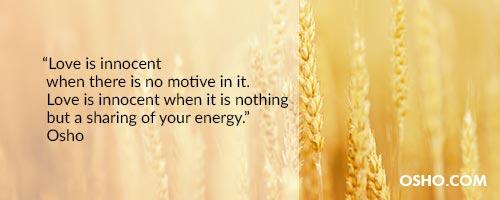
“Fame is foolish, it is pointless, meaningless. Even if the whole world knows you, how does it make you richer? How does it make your life more blissful? How does it help you to be more understanding, to be more aware? To be more alert, to be more alive?”
― Osho, The Buddha Said…: Meeting the Challenge of Life’s Difficulties
